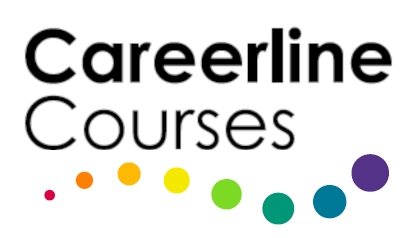Build the backbone of modern communication—start your journey into computer networking today
Whether you’re aiming for a career in IT or want to expand your digital skills, this flexible, online computer networking course gives you the foundational knowledge you need to confidently work with network systems. You’ll explore how data moves, how networks connect and communicate, and how to keep them secure and efficient. This computer networking course will take you from introductory topics such as networking topology, architecture, and transmission media, to more advanced topics such as hardware components, design and planning, upgrading, basic TCP/IP services and applications, and beyond.
A network is a system of connected computers and devices—ranging from just a few to millions—that communicate and share resources. These systems often include components like printers, external drives, routers, and modems. Whether you’re managing a home setup or a corporate IT system, understanding how networks function is essential for working effectively with technology.
What You’ll Learn:
-
Network Basics: Understand key concepts like protocols, LANs, WANs, IP addresses, and more.
-
Hardware & Configuration: Get familiar with routers, switches, modems, and setup processes.
-
Wireless & Wired Systems: Explore the strengths and challenges of both.
-
Security Essentials: Learn how to protect networks from unauthorized access and breaches.
-
Troubleshooting & Maintenance: Build confidence solving common networking problems.
Perfect for beginners and aspiring IT professionals, this course is your first step into the tech world—delivered 100% online, at your own pace, with expert tutor support.
Why Choose Careerline?
-
Study anytime, anywhere with flexible online access
-
No prerequisites—start with zero experience
-
Personal tutor support via email
-
Certificate of completion included
Get connected—start your Computer Networking Course today and launch your future in IT!
Detailed Course Outline
This course is made up of a number of lessons or units. Each of these has self assessment questions, a set task (practical homework) and an assignment which you can upload online.
Study Goals
- Discuss the history and key developments in networking.
- Describe the main networking models, terminology and standards.
- Explain the different topologies, architectures and transmission media in computer networks.
- Explain the physical components within a network and how individual components connect to each other.
- Evaluate the needs of the organisation and design a logical network.
- Discuss reasons for network upgrade and techniques for managing a network upgrade.
- Explain the importance of network protection to prevent downtime and preserve valuable data.
- Identify and compare various connection options like dial-up connections and dedicated connections.
- Describe the installation process and configurations for networking.
- Describe the TCP/IP suites of utilities generally used by end users.
There are 10 lessons in this course:
1. Networking Terms, Concepts and Standards
-
- What is a network
- History of networks
- Network hosts and backbones
- Access vs core networks
- Internet backbone
- What is a host
- Types of computer networks
- Local area network (LAN)
- Wide area network (WAN)
- Home networking and Wireless local area networks
- Types of LANs
- LAN topology
- Wireless networking (Wi Fi)
- Hardware for a basic network
- Network cards
- Network cable
- Hubs and switches
- Routers
- Network standards
- ISO
2. Network Topology, Architecture and Transmission Media
-
- Physical vs. local topology
- Design considerations
- Physical topologies: star, bus, ring, tree, mesh
- Logical topologies
- Architecture of a network
- Transmission media
- Cost of a network
- Band width
- Band use
- Multiplexing
- Attenuation
- Electromagnetic interference
3. Network Components and Hardware
-
- Repeater
- Switch
- Hub
- Bridge
- Router
- Server
- Modem
- Short haul modems
- Firewall hardware
4. Network Design and Planning
-
- Evaluating needs of an organisation
- Applications
- Users
- Network services
- Security of the network
- Growth planning
- Designing a logical network
- Communicating effectively with clients
5. Network Upgrading and Project Management
-
- Why upgrade a network
- Is it time to upgrade
- What are the new requirements
- Planning an upgrade: prioritise, budget, evaluate
6. Network Protection and Maintenance
-
- Information security
- Network attacks
- Man in the middle attack
- Replay attack
- Denial of service attack
- Distributed denial of service attack
- Attackers
- Internal security
- Password security
- File and directory permissions
- Educating users
- External security
- Firewalls
- Intrusion detection systems
- Security zones
- Virtual LAN’s
7. Understanding Network Connecting Options
-
- Dial up connections
- DSL connections
- ADSL connections
- ADSL+2 connections
- Cable connections
- Leased line connections
- Satellite
8. Installation and Configuration of Network
-
- Network installation process
- Cabling the network
- Router configuration
- Server configuration
- Multiple equipment configuration
- Testing the configuration
9. Basic TCP/IP Services and Applications
-
- TCP/IP suite
- HTTP
- SMTP/POP3
- Telnet
- FTP
- DNS
- NNTP
10. Troubleshooting Tools for TCP/IP Networks
-
- Troubleshooting techniques
- Troubleshooting tools
- Ping
- Traceroute
- NS lookup
- Hostname
When you have completed the lessons of your course, you will be given the option of taking the optional exam.

